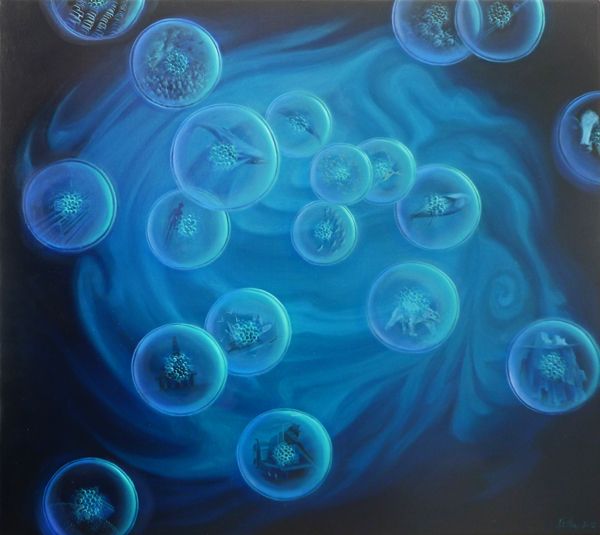Archive
2016
Exhibition - suffusion
Suffusion, explores the concept of suffusion –of
water, of edges, of lines, of light.
The culmination of 15 years of practice, Suffusion deepens Jacqueline's study of water, of light, and of
transparency. A quiet observation of the behaviour of light in water, her paintings make a shift away from
the realism of previous works. By paring back the aesthetic and honing her focus on the refraction of light,
each work becomes a meditation that observes light at play – beams and lines morph into fluid formation,
permeating the darkness, pushing into expansiveness.
2016
EXHIBITION - BENEATH THE SURFACE
These works evoke the immersive qualities of water. Rather than standing at the waters edge, the viewer is afloat, adrift in the element of water, where light is slowed down and refracts and another world reveals itself beneath the surface.
The vigour of the ocean has influenced my painting method. Areas of focus are contrasted with blurred movement, at times viewed through veils of transparent glazes or splatters and bubbles, embodying the energy of the ocean.
2015-2017
Mares Leg Cove series
2015
Hahei Series
2015
Caustic networks
2014
exhibition - rockpools
2014
refracted light studies - networks of light
Drawings - pastel/charcoal on paper
2014
Nets - found Sea Debris
Drawings - pencil on paper/ink on painted paper
2014
mercury Bay
2013
seascapes
2012
exhibition - The humble collection
2011
alderman islands, hahei, hot water beach, taranaki.
2010
Natures call
These paintings form the Nature’s call series are a culmination of my fascination with the properties of water, philosophical ideas about water, scientific discoveries about our deep oceans and our response to environmental challenges.
The concepts and ideas behind this body of work had its genesis after I read “Landscape and Western Art”. The author Malcolm Andrews puts forward the idea that landscape art which we think of in our culture to be an appreciation of nature, actually developed out of our own disconnection with nature. That is as man became gentrified, he yearned for the connection he had lost.The very notion of ‘landscape’ is a human construct. It frames and dissects nature that has no limits. We are now outside nature. As outsiders our disconnection with nature has led to the exploitation of our natural environment.
I felt compelled in my practise to create a path towards nature, to return to the “inside”, to give nature a voice. This body of work reflects on our interaction with our environment, to comment on the effect we are having. I’m interested in how we “treasure” our environment. It is ironic how an act of appreciation for the environment can affect it adversely. For example visiting a marine park to see trained dolphins perform.
We gather souvenirs of these experiences or special places that help us form our identity. The scale in which we take from the environment and the motivation behind it is where the act of gathering becomes a commercial endeavour. The oceans like the land are full of useful resources but the ocean is also the end of the road for our pollution. The irony of what we treasure and what we take is a central theme in these paintings.
Some of these works employ concepts used in ikebana and consider scale and the representation of a larger landscape in miniature form. This symbolises that what we do on a small scale affects the greater whole. Other works include mythology and how the ocean is represented as a guiding force in the environment.































































































